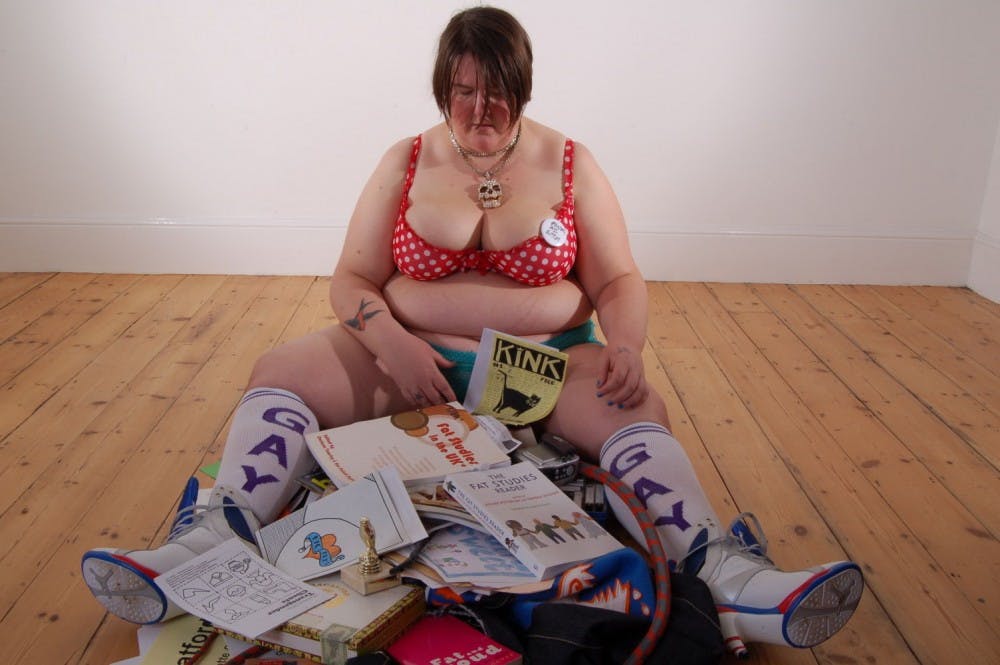LGBT Center highlights events for the 4th Annual Queer Studies Conference.
The intersection between academics and activism is not an avenue many students can find, but the LGBT and Women’s centers aim to bring those areas together in an informal setting.
The 4th Annual Queer Studies Conference this year is “Queer Justice: Struggles and Strategies," which aims to examine queer plight in areas of class, religion, race and disability and how activism in those areas intersect.
As part of the conference, the Ohio University Women’s Center will host an interview with author and fat and queer activist Charlotte Cooper via Google Hangouts.
Women’s Center director M. Geneva Murray will facilitate the interview, which will cover a gamut of topics related to the spectrums of fat and queer activism.
Fat activism is the promotion of the idea that people with all body sizes deserve the same rights and dignity, according to a previous Post report.
“What we’re going to be talking about is how you can define fat activism, what fat activism is and the proxies that have been used to describe fat activism,” Murray said. “But also, since it’s the Queer Studies Conference, we’re going to be talking about the ways in which there’s an intersection between fat activism and queer activism and what queer activism looks like within the context of fat activism.”
The interview is only part of the plan for day one of the Queer Studies Conference, which includes a screening of the documentary In the Turn followed by a discussion with director Erica Tremblay on Thursday and panel presentations created by students.
Friday will feature a keynote presentation and workshop by Southerners on New Ground, a regional Queer Liberation organization group that represents people of color, immigrants, undocumented people and those within the working class and rural towns, among many other groups.
“The conference is centered around intersectionality and identity.” Ryan Lovingood, graduate assistant for the LGBT Center, said. “We have both academic and activist examples, because this is about the intersection of activism and real-world identities.”
Cooper was chosen for the Queer Studies Conference because of the way she can relate topics to students, Murray said.
“She’s relatable in the sense that she does not believe that her research should be left to those in the Ivory tower or buried behind a paywall in some scholarly journal, but that it should be accessible to everyone regardless of educational background and access,” Murray said.
The event also will allow time for OU students to ask Cooper their own questions at the end of the interview.
“Often I think when we hear fat activism we think of things like body positivity or eating disorder movements for recovery," Murray said. "But those are really simplistic representations that can in some ways make fat activism seem prettier, rather than actually engaging with a lot of the acts that fat activists are working on.”
{{tncms-asset app="editorial" id="eb582e68-f5d4-11e5-ae97-9fdb24e7de3e"}}
Cooper’s latest book, Fat Activism: A Radical Social Movement, also will be discussed in Thursday’s interview. The book examines fat activism and its intersection with queer activism. It is based on the research Cooper did when pursuing her Ph.D.
“She also spends time making sure that the people she’s wanting to connect with it are going to be able to understand it,” Murray said. “(Cooper) speaks to students in a way they can understand. Charlotte is someone who is accessible. She’s exciting, she’s active, and I think she’s a really wonderful role-model.”
@broermazing






